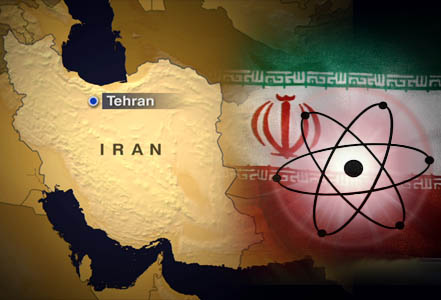 0630 GMT: On Friday, assessing the incident between two Iranian fighter jets and a US drone in the wider political situation, I concluded with questions about the US decision to release news of the event a week after it occurred:
0630 GMT: On Friday, assessing the incident between two Iranian fighter jets and a US drone in the wider political situation, I concluded with questions about the US decision to release news of the event a week after it occurred:
Should this pressure be seen as prodding of the Islamic Republic, hoping to keep the talks moving while ensuring that the US has the upper hand? Or is it being applied because the back-channel discussions of September-October broke down, without any apparent path to agreement and thus a renewal of high-level, public negotiations?
On Friday, we got some answers through the officials who fed an Associated Press story:
The Obama administration is considering a new approach in negotiations to curb Iran's nuclear program that would ease economic sanctions faster than previously offered if Tehran makes greater concessions than it has ever discussed. The proposal is one of several options being discussed before another round of negotiations between world powers and the Islamic republic, officials said Friday.
The U.S. aim is to try to prevent the next set of talks with Iran from failing like all previous efforts.
The officials are keen to present the situation as one where Washington is taking the diplomatic lead --- "US brainstorming on ways to reshape the offer to make it more attractive for the Iranians, without granting any new concessions that would reward the regime for its intransigence" --- so the story misses the essential context. The US-Iran "back-channel" talks have already taken place, based not on an American proposal but on an Iranian nine-step plan. That proposal links Tehran's moves to suspend enrichment of 20% uranium to easing and then removal of sanctions.
That approach was bolstered on Friday by the announcement that the Iranians will resume talks with the International Atomic Energy Agency on 13 December on the protocol for inspection and supervision of nuclear facilities.
The question now is how far and how fast the US moves from private contacts to public high-level discussions. The officials feeding AP were still being cautious:
With Obama re-elected, a U.S. official said the administration also would be open to direct talks with Tehran as part of the broader negotiations involving the larger group of world powers, if those would advance hopes of a negotiated agreement. But a one-on-one encounter sometime in the next three months is considered highly unlikely by the administration because it sees no willingness by the Iranians.
And the sources, as they neglected to refer to the Iranian nine-step plan, were still putting the onus for concession on the Islamic Republic:
The administration sees Iran's refusal to comply with its nuclear obligations as the sole cause for the logjam. But officials say the administration is considering an expanded offer that includes a deeper and faster drawdown in the oil and other sanctions that are sapping billions of dollars out of the Iranian economy.
But those sanctions could be scaled back only if Tehran agrees to far greater concessions that it has ever hinted at on its fiercely-defended enrichment program.
Posted via email from lissping
No comments:
Post a Comment
Note: only a member of this blog may post a comment.